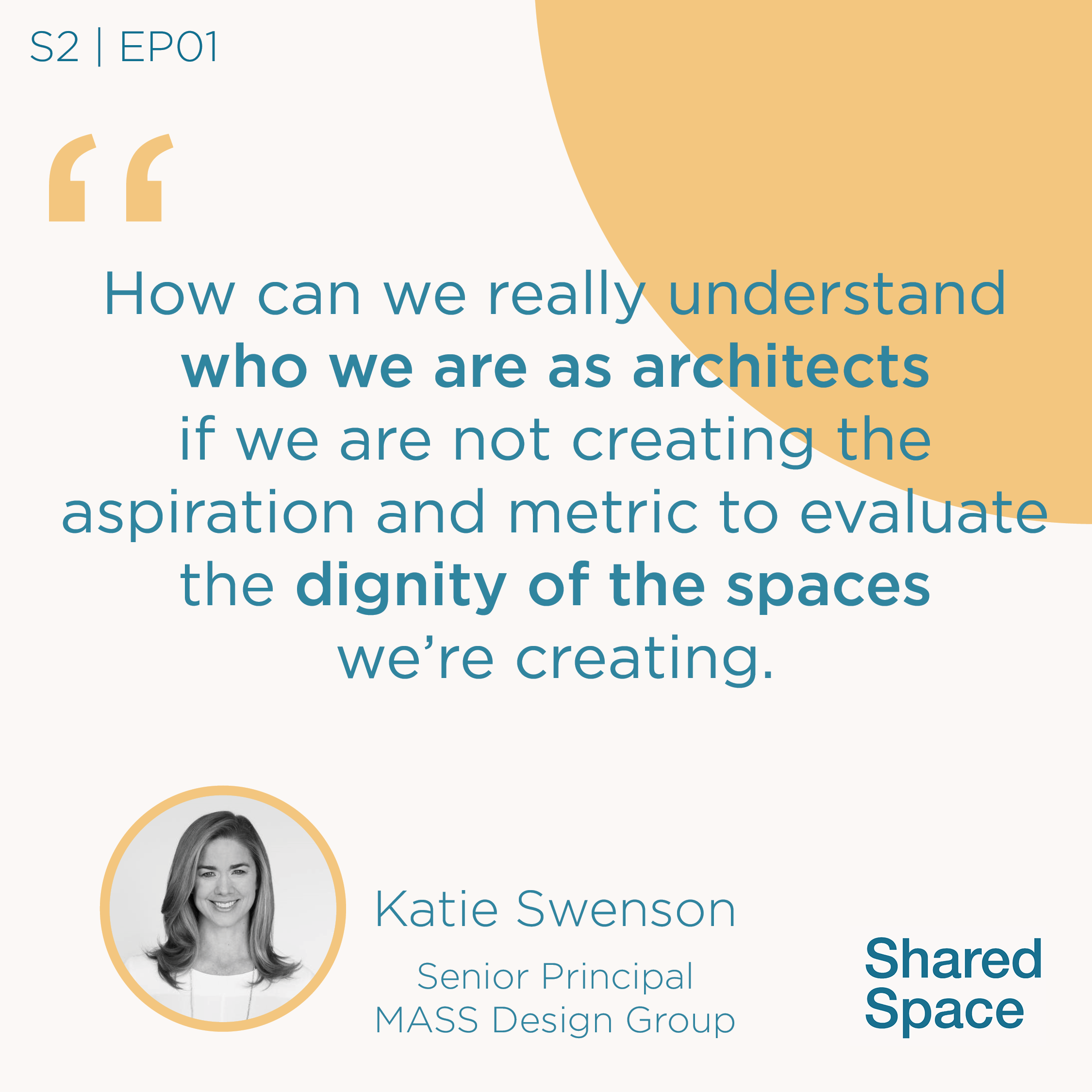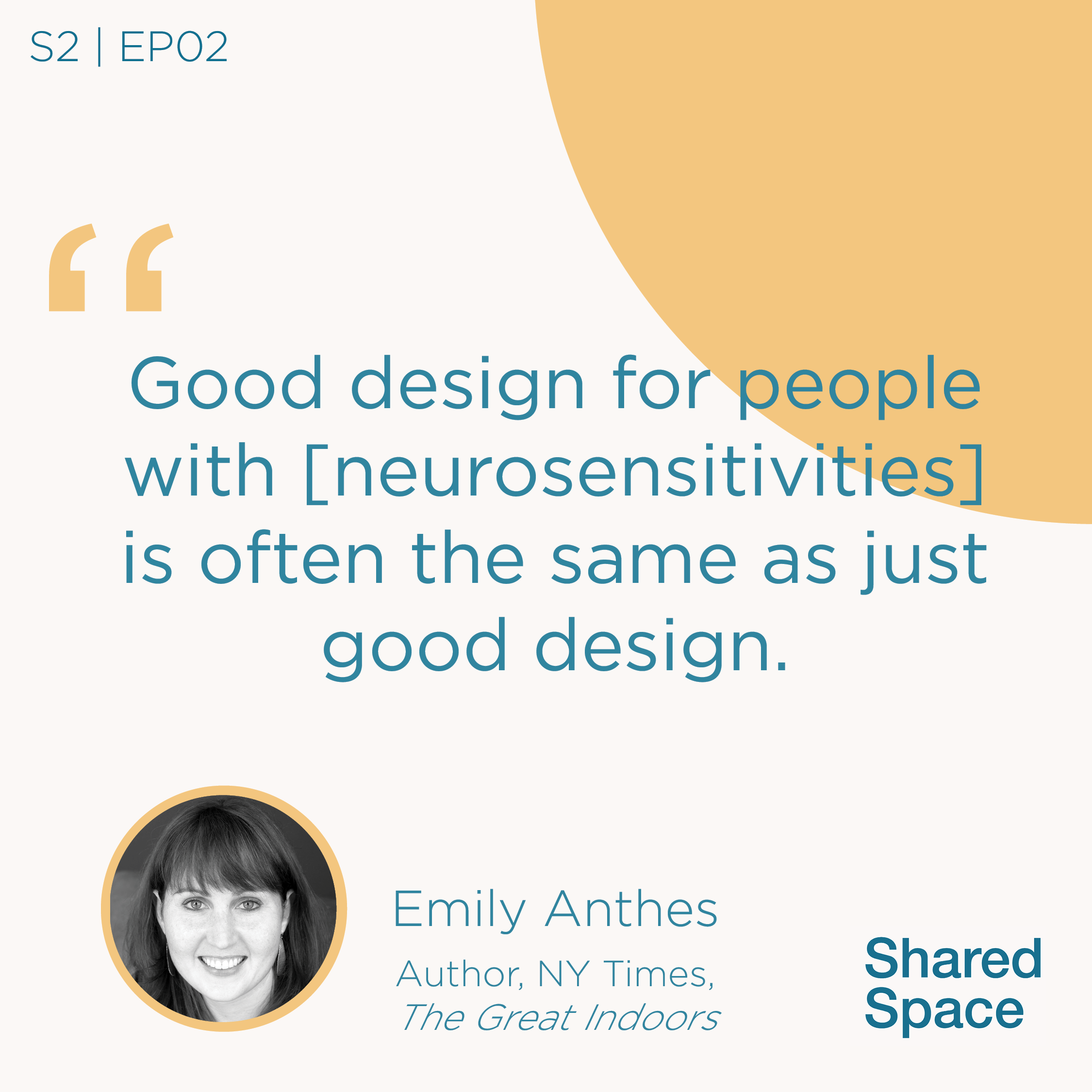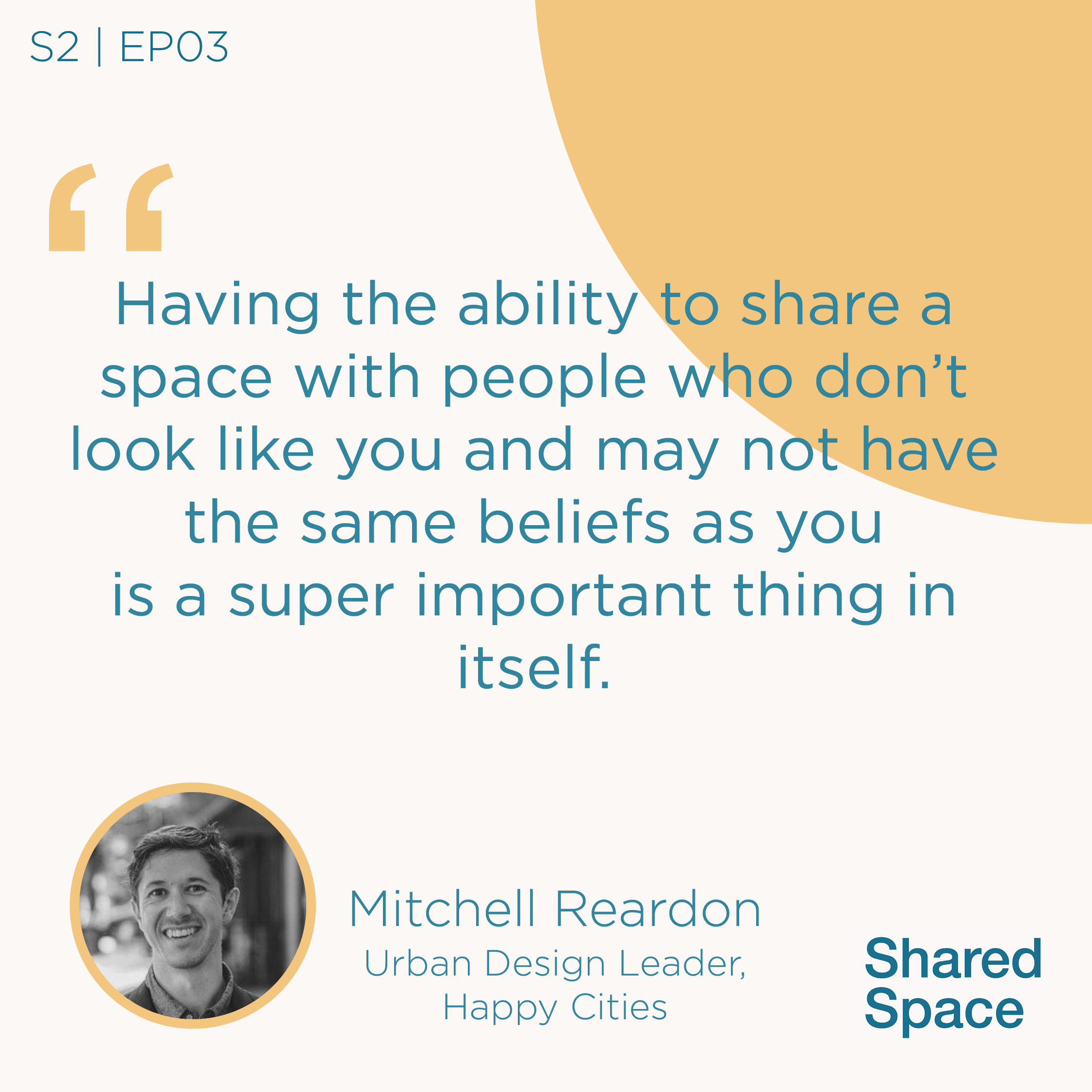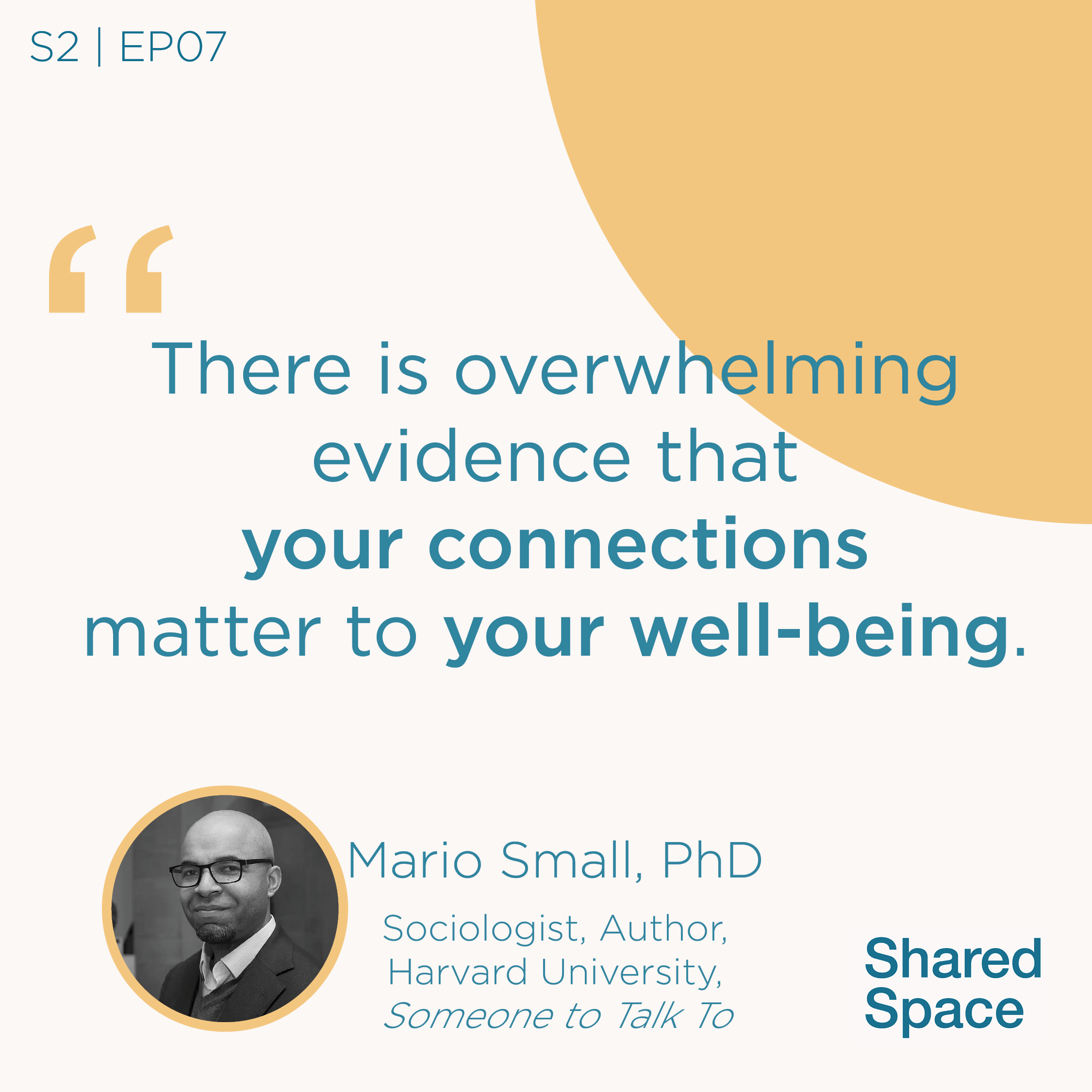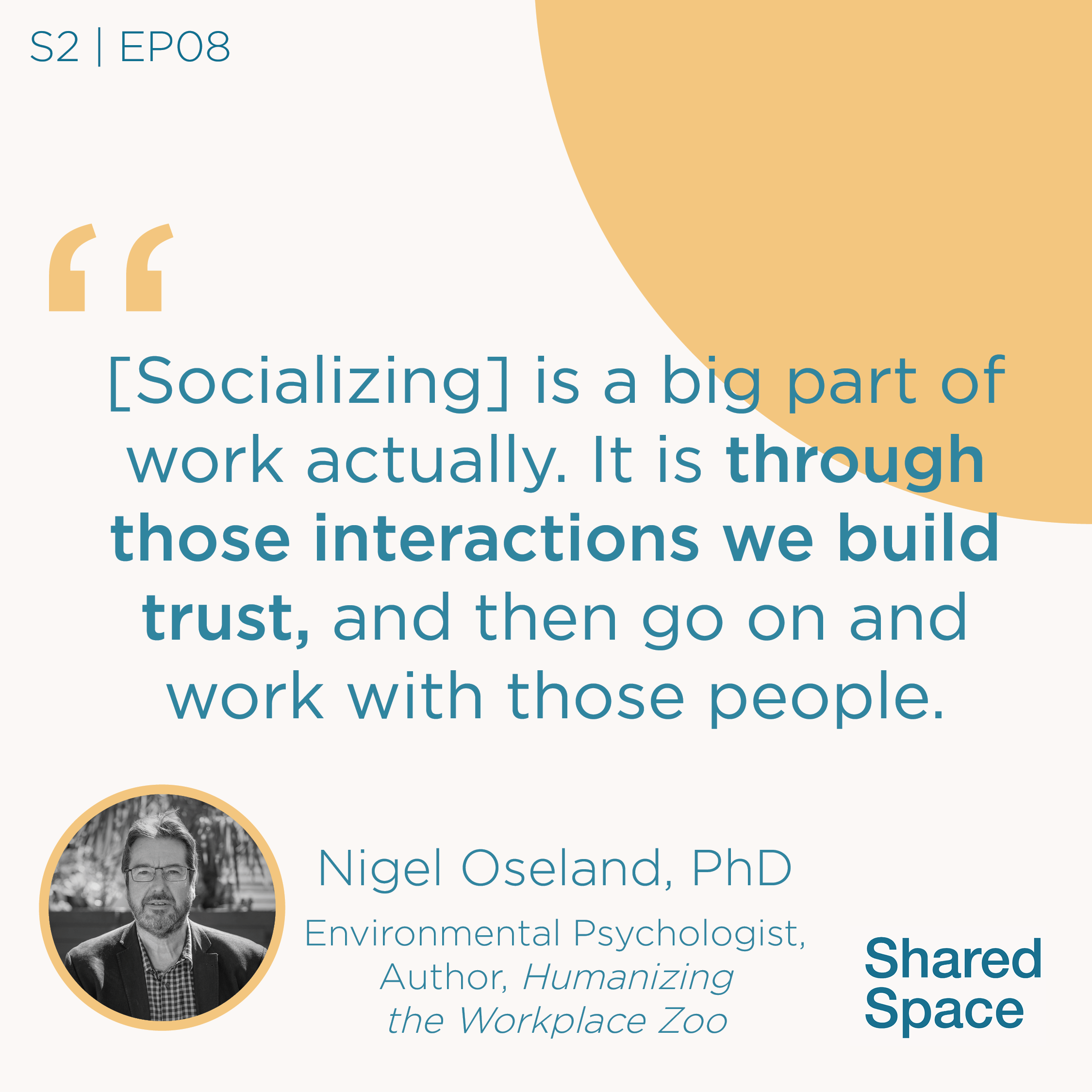Best Of Season 2
Hey y’all, I know it’s been a long wait for this final episode of the season, but as many of you know I’ve been on sabbatical for the last few months. And I had actually written about that for Psychology Today, talking about when and why I realized I needed to step away from work for a little while and really care for myself, my family, and my mental health.
Even now, it feels scary to say that – because of how much I love my work, and how our culture is programmed to falsely treat productivity as self-worth. But I also think it’s really important to name it and claim it. I’ve received so many kind messages from you all sharing your life experiences, your struggles with burnout and self-worth, and how they’ve shaped you.
I cannot say enough how much I appreciate all of your support, kindness and honesty - it’s been amazing.
I am very excited to share this special *Best Of Season 2* Shared Space podcast episode! We talk with architects, psychologist, designers, activists, writers, urban planners – a host of amazing community changemakers and we weave all of those together for you all.
We start with a basic understanding of what is loneliness, social health, and social capital and why is it so important. Then we dive into workplace design, public spaces, housing, and more – exploring examples from across the globe as to what types of design strategies and approaches foster health, happiness, and social connection, while combatting loneliness, social isolation, and inequity.
Interviews
Dr. Mario Luis Small, sociologist, endowed professor at Harvard, and Panama native - shares his studies on social networks, and starts by defining a key component of our social health – social capital, and why it is critical for so many of the other social determinants we think of from transportation, education and habit formation.
Nigel Oseland, author and environmental psychologist – shares findings from his recent book Beyond The Workplace Zoo: Humanizing the Office. He specializes in workplace design for human connection, and I was honored to be his first interview for his new book.
Emily Anthes, New York Times reporter and author shares findings from her book – The Great Indoors: The Surprising Science of How Buildings Shape Our Behavior, Health, and Happiness.
Mitchell Reardon, urban planner with Happy Cities – talks about what it means to create truly accessible spaces for everyone, where everyone feels welcome. He shares fascinating research findings around Streets for People, a study they did in Canada at the beginning of the Pandemic.
Katie Swenson, design activist and author of MASS Design Group just published two books – Design with Love: At Home in America about her time with Enterprise Communities, and In Bohemia: A Memoir of Love, Loss and Kindness about her personal journey. She discussed how architecture needs to rethink and evaluate the success of spaces and the importance of dignity in design as a fundamental need.
Shelby Blessing, Architect and Activist in Austin Texas shares her experiences working with the Community First Village in Austin – designed specifically for community building and connection for formerly homeless individuals.
June Grant, Okland based activist and architect shares her experiences working with AARP – the largest non-profit dedicated to older adults to create a guidebook for Accessory Dwelling Units – as a method for maintaining community fabric and fostering social connection in communities.
Andrew Howard, urban planner with Team Better Block and WGI talks about what is really important about not only the product but the process of community design.
Judy Sullivan and Meg Moschetto from the Cochrane Heights Neighborhood Association in Dallas, Texas share their perspective of citizen activists that transformed a rundown empty space into a vibrant public community space. They share what it took to get it done and what it changed for their neighborhood community.
Shout Out to A Wonderful Season with You All!
Thank you all so much for all of your amazing feedback shares, Instagram messages, and emails this year. It’s been such a gift hearing from all of you! From talented Cornell Institute for Health Futures students to passionate clinicians and artists across the US, and thriving architects and designers in India, Australia, and the UK – Tasha, Lindsey, Patricia, Mike, Ana, Tomasso, Shonta, Ruth, and many others - love you guys and gals! Thank you.
I also want to give a very special shout out to two amazing women who I was incredibly honored to join on their podcast – One is Dr. Resa Lewiss, MD she is a force of nature and has an amazing podcast called Visible Voices that lifts voices from across health equity and design really advancing what Health Design means and all spheres. And reporter, Peg Fong with Alone Together podcast. The Alone Together podcast has an amazing episode really focused on loneliness and shared spaces looking at the history of oh how we came to design the way we are today, and how we can design better spaces for social connection. I was really honored to be interviewed for that along with an extensive conversation about the theme is architect Le Corbusier. It has been such a gift getting to know both Dr. Resa Lewiss, and Peg Fong! When you’re done here, head on over and check out both of those podcast episodes, I’ll share the links in the show notes.
Thank you all so much for sharing your time with me it’s such an honor and privilege to get to spend this time together and share this passion with you all. Until next season!
About the Host
Erin is an architect and design researcher bridging the gap between research and practice with a focus on design for health. She believes in the power of places to heal, connect, and serve vulnerable people — from hospital patients and staff, to people struggling with social isolation and mental health challenges. Erin is driven by a commitment to help others and the joy of working together to solve complex problems with shared purpose.
Website: www.erinpeavey.com
Twitter: @erin_peavey
LinkedIn: Erin K. Peavey
Instagram: @design.for.health

